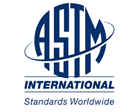 The new Cold Soak Filtration Test method for B100 biodiesel finally has an official number.
The new Cold Soak Filtration Test method for B100 biodiesel finally has an official number.
This story from Biodiesel Magazine says the ASTM’s Committee of Standards has given the method the an official number – ASTM D 7501, due to be published later this month:
The CSFT method currently in effect was developed as a result of the Minnesota experience in 2005-2006 of statewide filter cloggings shortly after a state B2 mandate was triggered. The CSFT was developed as an attempt to keep contaminated biodiesel – or biodiesel laden with sterol glucosides, mono and di glycerides, metals, soaps, water – out of the marketplace. Those contaminants can react in such a way to cause a “snow-globe” effect wherein precipitates fall out of solution from the fuel at temperatures above the cloud point. However, the precise mechanisms behind how the contaminants react with one another to cause precipitate formation above the cloud point are still largely unknown.
The new method takes into account the changes in states of matter B100 goes through during the chill. If the test sample becomes solid during cool down, it will be given a four-hour warm up time instead of two hours. In addition, samples will be warmed to 25 degrees C, as opposed to just warming on the bench. The article points out that the CFST was designed for soy biodiesel.

